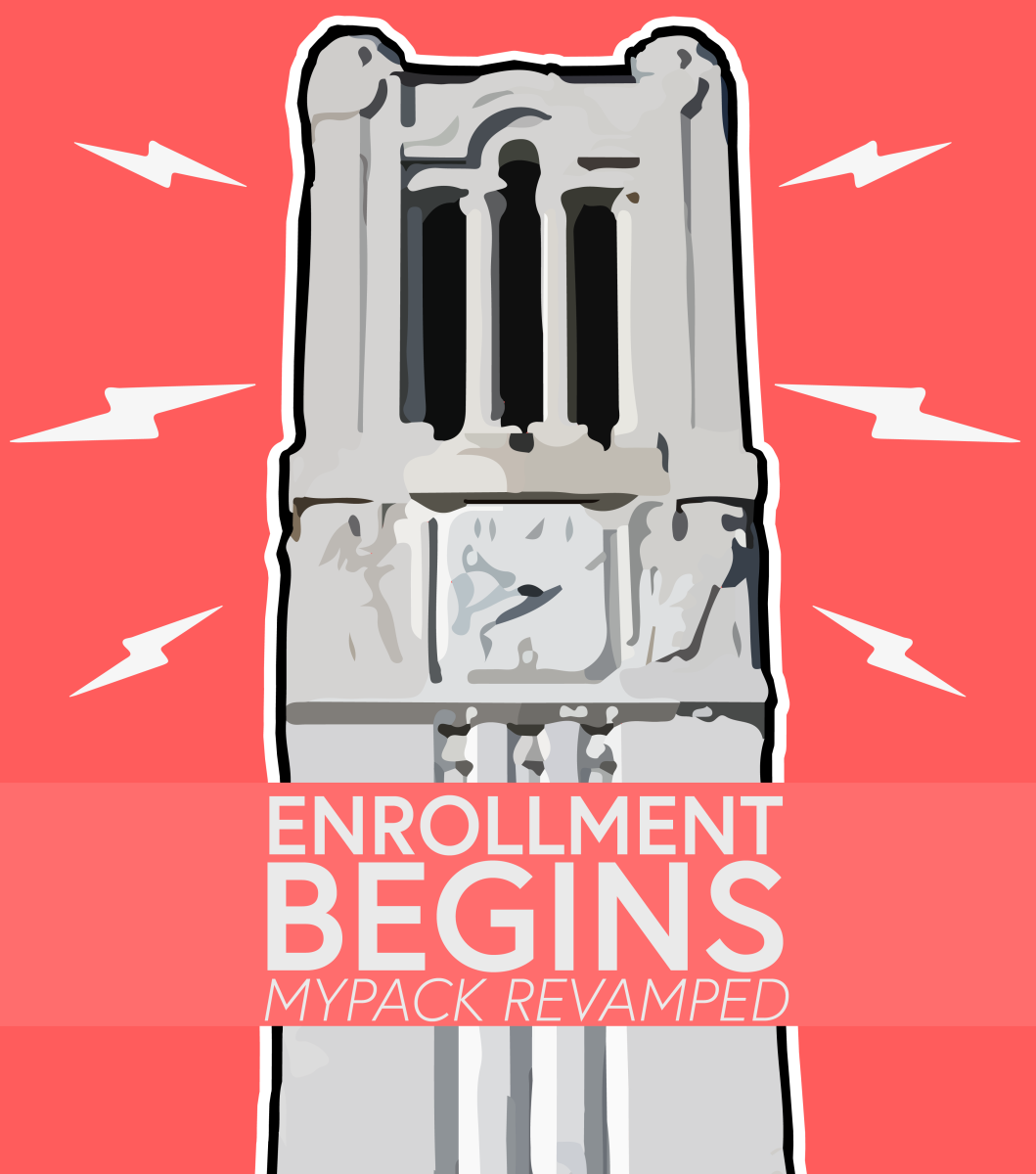As enrollment for the upcoming fall 2018 semester kicks off, advisors and students are meeting and preparing schedules and degree audits while simultaneously learning how to navigate the fairly new layout of MyPack Portal.
With the redesign of MyPack occurring last October, students and advisers alike experienced growing pains in navigating a new version of the portal that was occasionally slow or lagging and could not even be supported on some Internet browsers and mobile devices.
“Change is always problematic,” said Jim Alchediak, a lecturer in the department of communication and an academic advisor. “You have to learn all the new bells and whistles, but [MyPack Portal] seems to work reasonably well. SIS, the Student Information System, is always a tool, and it has gradually evolved to be a better tool—but you still need that human interaction. There are some things that SIS cannot quite get right.”
Ben Wendt, a second-year studying math education, also feels that the new version of MyPack is good overall, but he has experienced issues in loading the program.
“The new update for MyPack is great when it works,” Wendt said. “It has stopped working on Microsoft Edge sometimes, but it still works on Chrome.”
Despite some drawbacks, MyPack Portal’s Planning and Enrollment tab is continuing to serve students in planning out their courses during their time at NC State. Using the Pack Planner, Degree Audit and Enrollment Wizard, students can find the best time slot for classes and easily sign up for those slots.
Because planning and enrollment can potentially be a stressful aspect of student life, advisors exist to assist and answer student questions while also encouraging students to have some background knowledge on how to find and plan for their degree.
“The most important thing to do is plan,” Alchediak said. “Some people seem to be very hesitant or haven’t taken the time to really learn the degree planner. If students just put in a little bit of work upfront and learn how the degree planner and audits work, they can have mapped out their paths to a degree. There are also those grey areas here and there that the advisors must assist in.
Fellow students can also be used as a resource in planning courses for the upcoming semesters.
“Another thing to do is talk to your colleagues,” Alchediak said. “Now realize that sometimes you do get misinformation from your peers, but they can also be very helpful in terms of helping you get started with MyPack.”
Wendt also believes that knowing how to look and find classes online, as well as taking advantage of advisor guidance and experience, can help students go through advising and enrollment smoothly.
“I would [tell other students] to take advantage of the Pack Planner,” Wendt said. “Also, have questions to ask your advisor when you go in for your advising meeting. They have information and knowledge for you. You are going to realize later when you are enrolling that you are going to have questions, and you might be confused.”
Advisors have and will continue to meet with students to ensure they are meeting the requirements for their degree while trying to accommodate their individual desires.
“Every person that comes into advising is unique and an individual,” Alchediak said. “I really try to tailor comments I make to where I see that person. I learn something about them just from what I see in their degree audit and planning. I try to learn as much as I can through interpersonal interaction. That is where humans have to be involved. I guess that’s what keeps us [advisors] at our jobs.”
Enrollment started March 21 with graduate and veterinary medicine students and will continue from fifth-year students down to first-years through mid-April. Late registration will begin July 18th with a $100 fee.








